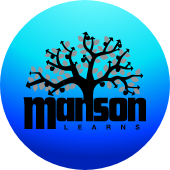-
Mentors
Manson School District believes that mentorships provide opportunity for veteran teachers to promote the growth and development of the beginning teacher to improve student learning. When new teachers are hired, they are given a full program and are expected to impact student learning immediately without the benefit of any period of apprenticeship. New teachers essentially have to learn how to teach while on the job. Mentors are critical supports in guiding new teachers to enhance their planning, instruction, and content knowledge. Mentors help orient new teachers to the school community and to teaching in general. Mentors also serve as collegial and emotional supports for this challenging phase of a teacher’s career.
Role of the Mentor
One of the mentor’s initial responsibilities is to establish a trusting relationship with the beginning and new to district teacher. Research indicates that mentoring is most effective when the beginning teacher trusts the mentor. The mentor builds this trust by creating a safe, risk-free learning environment for the beginning teacher by providing support that is non-judgmental and confidential. Confidentiality invites honesty, risk taking, and self-reflection by the new teacher. While the mentor does not share evaluative information about the beginning teacher with anyone (including principals), topics, content, and strategies can be shared with administrators.
Mentor Compensation
The mentor/mentee relationship may require time to meet outside of the contracted day. The following stipends will be issued for the year: New teachers $300; Mentor of a new teacher $300; New to district teachers $200; Mentor of a teacher new to the district $200.
Mentor Activities
Types of Interactions…
The mentor meets with the beginning teacher for regularly scheduled structured meetings throughout the year. Meetings may include both in-classroom support and one-on-one conferences. When the mentor views the beginning teacher’s practice, there is a mutually agreed upon purpose, driven by the needs of the beginning teacher, and the mentor shares objective non-judgmental data about classroom practice. When the mentor meets one-on-one with the beginning teacher, it’s for the purpose of holding reflective conversations that build the teacher’s capacity to make effective decisions. The mentor guides the beginning teacher in the use of classroom and student data to formulate strategies, solutions, and next steps.
Strategies…
While there are many strategies available to the mentor in working with the beginning teacher…a list of some strategies is included below:
- Introduce and orient the new teacher to the school
- Use the Marzano Instructional Framework to guide the new teacher in reflecting on practice for the purpose of growth and development
- Observe the new teacher’s classroom to provide objective non-judgmental feedback
- Arrange reciprocal classroom visits
- Model and conduct demonstration lessons
- Co-teach with the new teacher
- Use tools such as the SWIVL for teacher self-reflection
- Help the new teacher…
- Identify and access school and community resources
- Develop classroom rules and routines
- With classroom management
- Set-up classroom
- Plan lessons
- Look at student work
- Use formal and informal assessment
- Analyze student work to differentiate instruction
- Understand and use the curriculum and CCSS standards
- Develop short and long term goals
- Prepare for evaluator’s observations
- Communicate effectively with parents
- Prepare for parent-teacher conferences
- Understand and follow through with procedural responsibilities (i.e. completing steps for a field trip; submitting an absence in AESOP)
Protocols for Mentoring Conversations
A key way to extend and deepen thinking is by posing questions. Your questions before a classroom visit can help clarify goals for student learning, explore teaching strategies, and identify a focus for data collection. Summarize or paraphrase key ideas and feelings that emerge during the conversation, and agree to follow up. In the reflecting conversation, you might ask questions such as these:
- How do you think the lesson went?
- Why do you think that is the case?
- What would it look like if…?
- In what ways did the students meet or not meet your learning goals?
- How do you know?
- What do you notice in the observation data (mentor notes)?
- How might you follow this lesson? Next steps?
- What instructional practices has resulted in this success?
- What are your thoughts about this process and our work together?
Suggested Pacing Calendar
September
- Introductions: Begin a trusting relationship, share experiences
- Identify school and community resources
- Go over norms, rules, routines, school policies
- Support with initial assessments for setting student growth goals and instructional groups
October-November
- Engage in active listening
- Assist with lesson-planning, pacing of curriculum
- Incorporate CCSS in planning
- Modeling and tips for classroom management
- Arrange peer-observations
- Review available professional development opportunities
December-January
- Help set priorities for the rest of the year
- Suggest need for self-care, time to rejuvenate
- Encourage collaboration with colleagues
- Review data collection process – support necessary modifications
February-March
- Assist with pre- and post-observations
- Incorporate CCSS in planning
- Analyze student work and differentiation strategies
- Reflect on professional goals, create new goals
- April-May-June Collect evidence/artifacts that show professional growth for EVAL
- Plan for start of new year
- Support with end of year state assessments
Resources Available in our Professional Library
- Becoming a Reflective Teacher by Robert J. Marzano (2009)
- The Art & Science of Teaching by Robert J. Marzano (2007)
- SIOP: Making Content Comprehensible for English Language Learners by J. Echevarria, M.E. Vogt, D. Short (2012)
- The First Days of School: How to be an effective teacher by Harry Wong (2003)
- Cooperative Learning by Spencer Kegan (1994)
- Understanding by Design by Grant Wiggins and Jay McTighe (2005)
- Embedded Formative Assessment by Dylan William (2011)
Professional Development Offerings
- Effective Instructional Practices for English Learners – Level 1 by ELD Coordinator via IRIS
- Peer Observations


